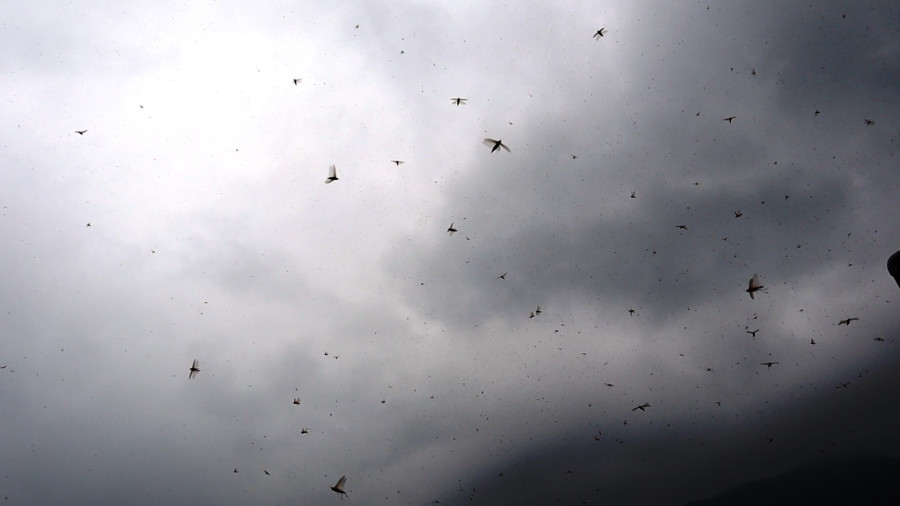National
Locusts likely to march towards west
With the wind direction predicted to change, locusts are expected to travel further west.
Post Report
With the wind blowing from east towards west, the swarms of locusts which entered Nepal on Saturday morning, are likely to travel further towards parts of the country.
The Meteorological Forecasting Division (MFD) under the Department of Hydrology and Meteorology on Sunday morning released a special weather bulletin to give updates on wind direction and wind speed that are crucial for tracking locust movement.
According to the weather update, the country has been witnessing westerly wind, blowing from the south-west direction, for the last few days which is said to have brought tens of thousands of locusts into various parts of the country.
“Wind direction has been recorded towards the south-west direction coming from the Arabian sea for Sunday. The wind direction will change towards the west from Monday,” said Raju Pradhananga, a senior meteorologist at the weather office. “We cannot say for sure about the locusts’ movement, but if they travel along with the wind direction, then they are likely to move towards the west.”
Locusts in large numbers entered Nepal on Saturday morning from the Indian state of Bihar and Uttar Pradesh. The bugs, which were first sighted in a few Tarai districts, were later seen in other hill districts as well.
The wind direction from the south towards west had brought locusts in Nepal, according to government officials.
“Wind direction is significant for locust movements. There was no immediate prediction of locusts entering Nepal,” said Ram Krishna Subedi, a senior plant protection officer at the Plant Quarantine and Pesticide Management Centre. “It is the sudden change in wind direction that brought locusts to Nepal. So in whichever direction wind blows, they will fly in the same direction.”
The weather office has also predicted light to moderate rainfall in many places of the country for the next three days. It is believed that locust swarms can not travel further in case of the rainfall.
“Rainfall slows down their movement. So if there are rainfall predictions then we can say that locust will not march further,” said Subedi.




 19.87°C Kathmandu
19.87°C Kathmandu














